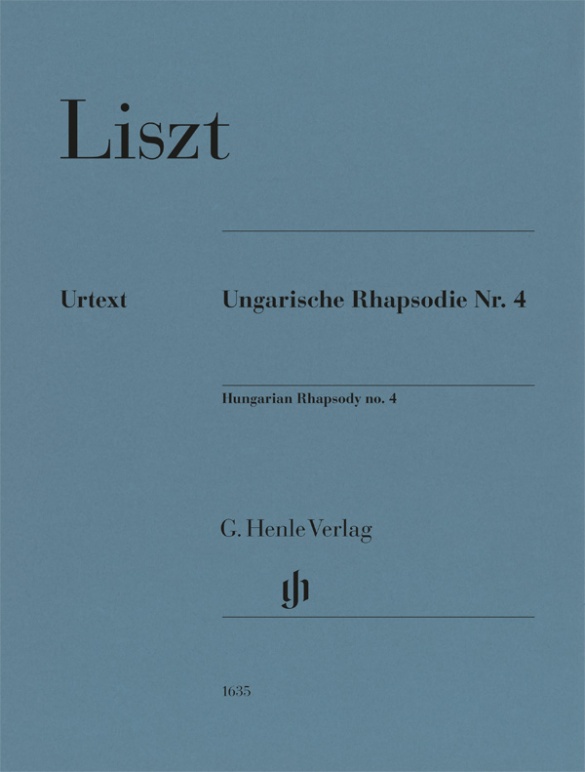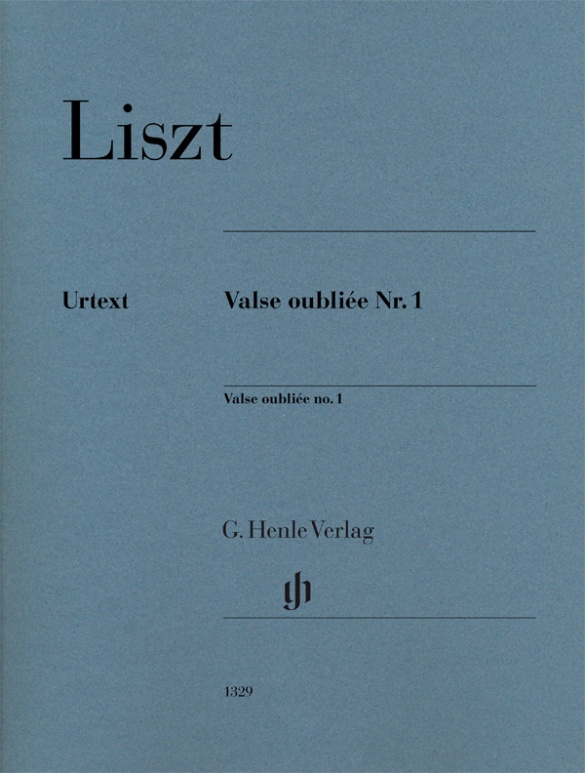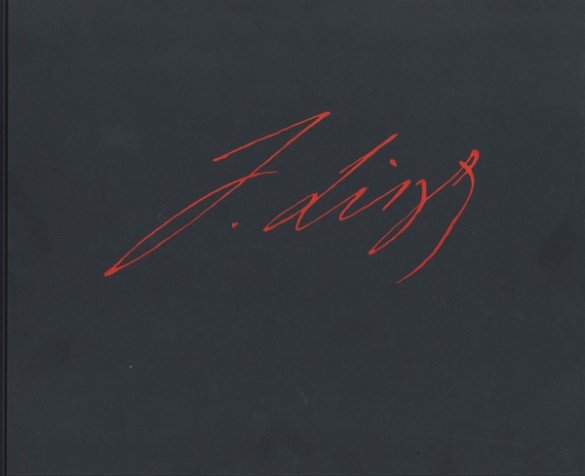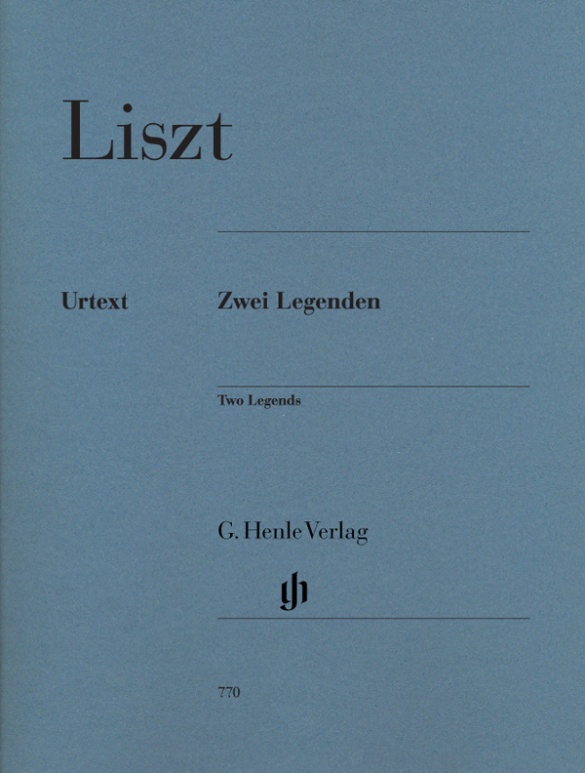

Franz Liszt
Two Legends
At last these two highlights of Liszt’s piano output are available in a good value “Urtext”! Every pianist knows the poetic, highly virtuosic legends about Liszt’s famous namesakes, “St. Francis of Assisi preaching to the birds” and “St. Francis of Paola walking upon the waves”. Liszt draws on all the resources of sound-painting to depict these holy events vividly. Both pieces are preceded by detailed explanations for the interested player in which the composer tells how he was inspired to compose this music. We print these texts in their French and Italian originals, and have added a German and an English translation.
mws-henle.cms.title-works.headline
mws-henle.cms-product-detail.composer-headline
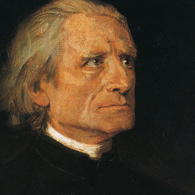
Franz Liszt
The most famous piano virtuoso of the nineteenth century is regarded as the most influential artist and composer (with Berlioz, Wagner) of the so-called New German School. His immense musical oeuvre comprises, above all else, works for solo piano, including numerous transcriptions; he also devised the symphonic poem. Important, too, are his sacred and secular choral works and songs.
| 1811 | Born in Doborján/Raiding (Sopron) on October 22, son of an official in the service of Prince Esterházy. First piano lessons from his father, early first attempts at composition, first public performance at age nine. |
| 1822 | Relocation of the family to Vienna, studies with Carl Czerny and Antonio Salieri. |
| 1823 | Relocation of the family to Paris. Composition studies with Ferdinando Paër and Antonín Reicha (1826). Performances in salons, concerts. |
| 1824–27 | Concert tours through France, to England and Switzerland. Composition of opera paraphrases for piano. |
| 1830 | Acquaintance with Berlioz, self-study by reading. He becomes Parisian society’sfavourite pianist and piano teacher. |
| 1835 | He moves to Switzerland with Countess Marie d’Agoult: their first child together, Blandine-Rachel, is born here. He continues concertizing in Paris. |
| from 1839 | Continuous concert tours throughout Europe. |
| from 1847 | Symphonic poems, including No. 2, “Tasso: lamento e trionfo”; No. 1, “Ce qu‘on entend sur la montagne” (‘Bergsymphonie,’ ‘Mountain Symphony’); “A Faust Symphony in Three Character Pictures”; “A Symphony to Dante’s Divine Comedy” (‘Dante Symphony’); as well as [No. 11], “Hunnenschlacht” (“Battle of the Huns”). |
| 1848–61 | Kapellmeister in Weimar; he advocates for progressive music (Wagner, Schumann, Berlioz). |
| 1857–62 | Oratorio, “The Legend of St. Elisabeth.” |
| 1861–68 | Resident in Rome. |
| 1865 | Takes minor holy orders. |
| 1866–72 | Oratorio, “Christus.” |
| 1871 | Appointed Hungarian court councilor; he lives in Rome, Weimar, and Budapest. |
| 1886 | Death in Bayreuth on July 31. |
mws-henle.cms-product-detail.author-headline
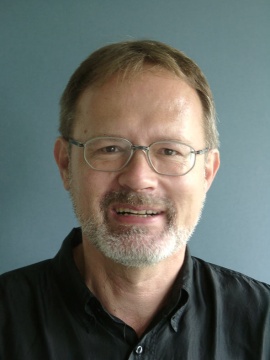
Ernst-Günter Heinemann (mws-henle.person.role.HERAUSGEBE)
Dr. Ernst-Günter Heinemann, born in 1945 in Bad Marienberg (Westerwald), completed his schooling in Gießen and read musicology, philosophy and German in Marburg and Frankfurt/Main and also for some time Protestant church music. He did his doctorate on “Franz Liszts geistliche Musik. Zum Konflikt von Kunst und Engagement”.
From 1978–2010 Heinemann worked as an editor at G. Henle Publishers (in 1978 in Duisburg, from 1979 onwards in Munich). He edited a great many Urtext editions for the publishing house, including “Das Wohltemperierte Klavier”, Volume 1 by Bach and all of Debussy’s piano works. In addition, he wrote essays on Debussy, Grieg, Liszt, Mendelssohn and questions concerning general editing, as well as giving seminars on editorial practice for musicology students in Munich.
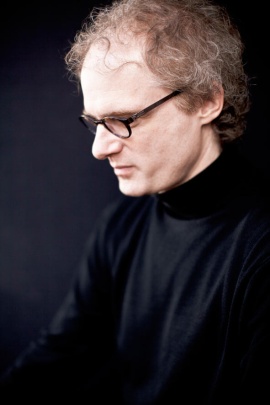
Jan Philip Schulze (mws-henle.person.role.FINGERSATZ)
Prof. Jan Philip Schulze received his piano education at the Musikhochschule in Munich and at the Tschaikovsky Conservatory in Moscow. He began his varied international career by winning awards at competitions in Italy, Spain and South Africa.
As a lied accompanist he has regularly given concerts with Juliane Banse, Annette Dasch, Rachel Harnisch, Dietrich Henschel, Jonas Kaufmann and Violeta Urmana; performing in the Berlin Philharmonic Hall, the London Wigmore Hall, the Salle Pleyel in Paris, the Auditorio Nacional in Madrid, in Tokyo, at La Scala in Milan, as well as at the festivals in Lucerne, Salzburg, Edinburgh, Munich and Schwarzenberg. Schulze is also interested in contemporary music, and has, for example recorded all of Hans Werner Henze’s Works for Piano, as well as given premières of concertos by Christoph Staude (with the Munich Philharmonic), Dror Feiler (with the Bavarian Radio Symphony Orchestra) and Johannes Schöllhorn (with the WDR Symphony Orchestra). Since 2004, Jan Philip Schulze has been Professor for “Liedgestaltung” at the Music Conservatory in Hannover.
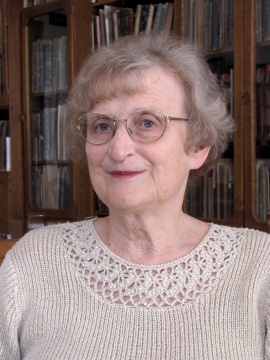
Mária Eckhardt (mws-henle.person.role.VORWORT)
Mária Eckhardt, born in 1943 in Budapest, studied at the Budapest Academy of Music (Liszt Ferenc Academy of Music, today University of Music), and in 1966 she graduated with a diploma in choral conducting and teaching music. After holding different posts at the Hungarian National Library Széchényi and at the Institute for Musicology at the Hungarian Academy of Sciences she worked at the Liszt Ferenc Memorial Museum and Research Centre of the Liszt Academy of Music, of which she was Head between 1986 and 2009.
Eckhardt has been awarded numerous prizes for her Liszt research, in Hungary, and also in Europe and the US. Alongside Franz Liszt, her main research interests include the musical life of the 19th century and Hungary’s musical history.
Product Safety Informations (GPSR)

G. Henle Verlag
Here you can find the information about the manufacturer of the product.G. Henle Verlag e.K.
Forstenrieder Allee 122
81476 München
Germany
info@henle.de
www.henle.com
Both are approachable pieces, despite the challenges of filigree passagework, tremolandi and colouristic detail, and Henle’s new edition serves the works well.
Piano Professional, 2005推荐
autogenerated_cross_selling
本书目其他版本
本书目其他版本


